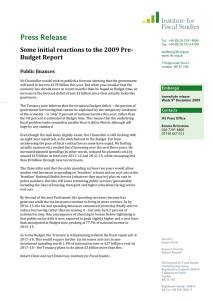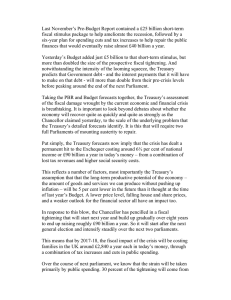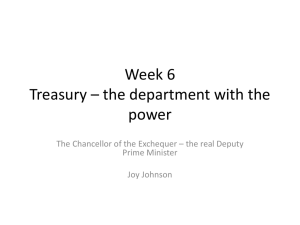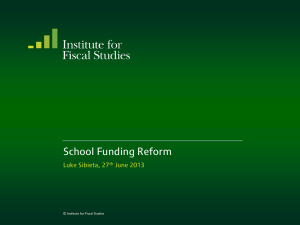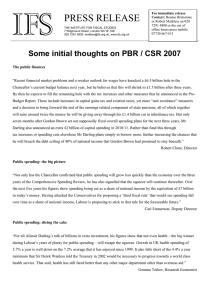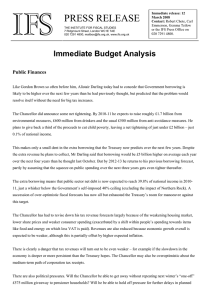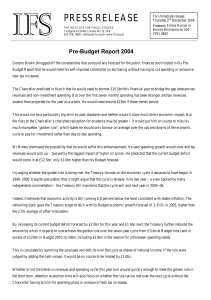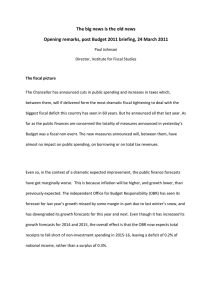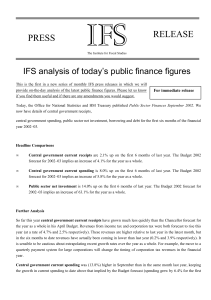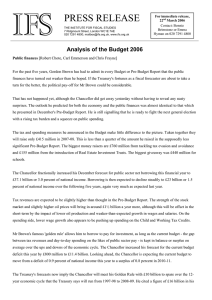COMMENT & ANALYSIS: Brown cannot escape higher taxes
advertisement
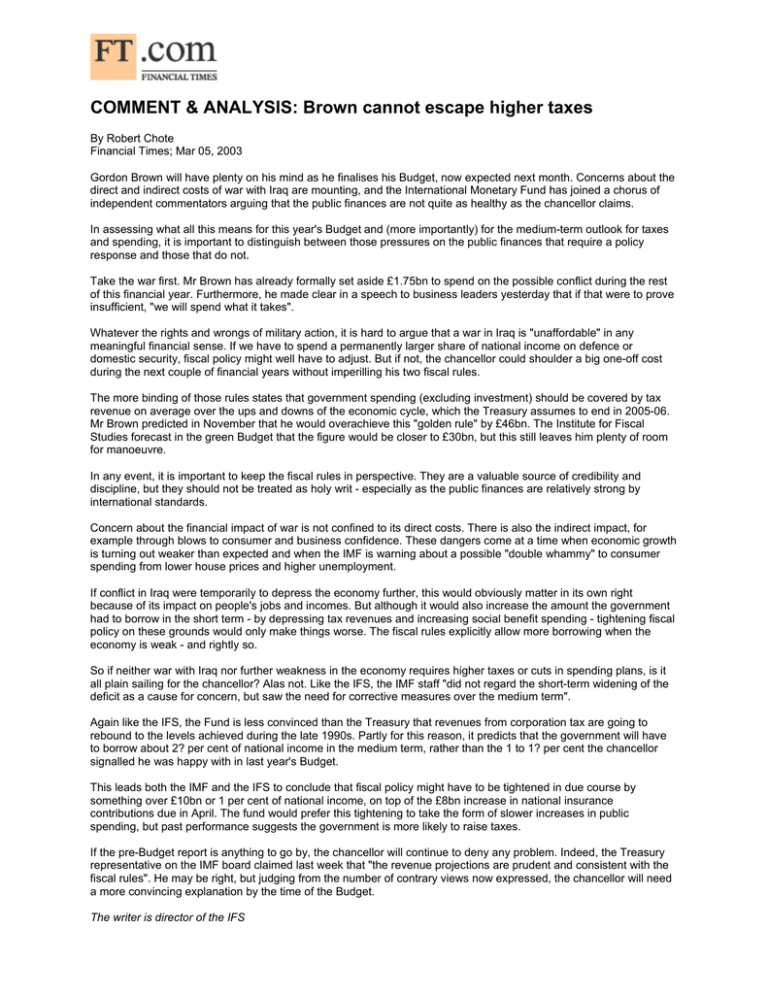
COMMENT & ANALYSIS: Brown cannot escape higher taxes By Robert Chote Financial Times; Mar 05, 2003 Gordon Brown will have plenty on his mind as he finalises his Budget, now expected next month. Concerns about the direct and indirect costs of war with Iraq are mounting, and the International Monetary Fund has joined a chorus of independent commentators arguing that the public finances are not quite as healthy as the chancellor claims. In assessing what all this means for this year's Budget and (more importantly) for the medium-term outlook for taxes and spending, it is important to distinguish between those pressures on the public finances that require a policy response and those that do not. Take the war first. Mr Brown has already formally set aside £1.75bn to spend on the possible conflict during the rest of this financial year. Furthermore, he made clear in a speech to business leaders yesterday that if that were to prove insufficient, "we will spend what it takes". Whatever the rights and wrongs of military action, it is hard to argue that a war in Iraq is "unaffordable" in any meaningful financial sense. If we have to spend a permanently larger share of national income on defence or domestic security, fiscal policy might well have to adjust. But if not, the chancellor could shoulder a big one-off cost during the next couple of financial years without imperilling his two fiscal rules. The more binding of those rules states that government spending (excluding investment) should be covered by tax revenue on average over the ups and downs of the economic cycle, which the Treasury assumes to end in 2005-06. Mr Brown predicted in November that he would overachieve this "golden rule" by £46bn. The Institute for Fiscal Studies forecast in the green Budget that the figure would be closer to £30bn, but this still leaves him plenty of room for manoeuvre. In any event, it is important to keep the fiscal rules in perspective. They are a valuable source of credibility and discipline, but they should not be treated as holy writ - especially as the public finances are relatively strong by international standards. Concern about the financial impact of war is not confined to its direct costs. There is also the indirect impact, for example through blows to consumer and business confidence. These dangers come at a time when economic growth is turning out weaker than expected and when the IMF is warning about a possible "double whammy" to consumer spending from lower house prices and higher unemployment. If conflict in Iraq were temporarily to depress the economy further, this would obviously matter in its own right because of its impact on people's jobs and incomes. But although it would also increase the amount the government had to borrow in the short term - by depressing tax revenues and increasing social benefit spending - tightening fiscal policy on these grounds would only make things worse. The fiscal rules explicitly allow more borrowing when the economy is weak - and rightly so. So if neither war with Iraq nor further weakness in the economy requires higher taxes or cuts in spending plans, is it all plain sailing for the chancellor? Alas not. Like the IFS, the IMF staff "did not regard the short-term widening of the deficit as a cause for concern, but saw the need for corrective measures over the medium term". Again like the IFS, the Fund is less convinced than the Treasury that revenues from corporation tax are going to rebound to the levels achieved during the late 1990s. Partly for this reason, it predicts that the government will have to borrow about 2? per cent of national income in the medium term, rather than the 1 to 1? per cent the chancellor signalled he was happy with in last year's Budget. This leads both the IMF and the IFS to conclude that fiscal policy might have to be tightened in due course by something over £10bn or 1 per cent of national income, on top of the £8bn increase in national insurance contributions due in April. The fund would prefer this tightening to take the form of slower increases in public spending, but past performance suggests the government is more likely to raise taxes. If the pre-Budget report is anything to go by, the chancellor will continue to deny any problem. Indeed, the Treasury representative on the IMF board claimed last week that "the revenue projections are prudent and consistent with the fiscal rules". He may be right, but judging from the number of contrary views now expressed, the chancellor will need a more convincing explanation by the time of the Budget. The writer is director of the IFS
